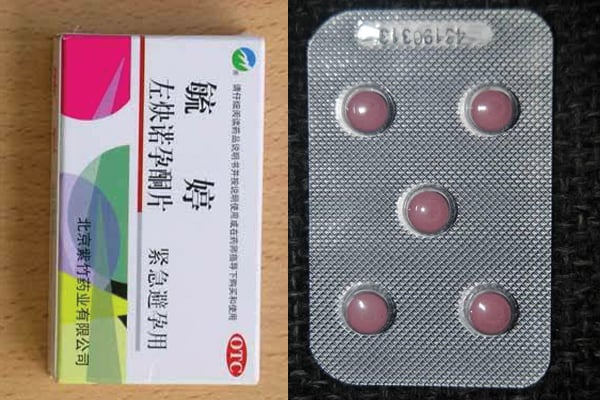Prime
NDA, scientists warn public on banned contraceptive

The one-month pill or Chinese pill medicine. PHOTO/COURTESY OF NDA
The contraceptive pill commonly known among women as the one-month pill or Chinese pill continues to be sold in the country, six months after the National Drug Authority (NDA) banned it in October 2022.
The pill, which is linked to the death of a woman in Kampala last month, has dangerous side effects and is sometimes not effective in preventing pregnancy, according to sources.
ICYMI:
The continued sale of the pill has raised concern among some members of the public who say NDA is not enforcing the ban and stopping the illegal importation and sale of counterfeit products and other dangerous medicines.
The World Health Organisation (WHO) estimates that every year, some 100,000 people across Africa die from taking “falsified or substandard” medication. Up to 42 percent of fake medicine seized worldwide is from Africa.
NDA, while banning the contraceptive last year, said the product has unacceptably high levels of hormones that can cause cancer, infertility and blood clots.
The authority said it has never been approved in Uganda and is being sold on the black market.
All the details about the product on the packaging are written in Chinese, which falls short of the NDA requirement for drugs sold in the country or requiring approval.
When the text was put in Google Translate, it showed that the product is a contraceptive pill manufactured in China by Zizhu Pharmaceutical Co., Ltd and that the product has a hormone called Levonorgestrel.
Ms Barbra Atwiine, a mother of three, died on March 21 due to blood clots in the lungs two months after she started using the pill, her husband Mr George Ssendagala said in an interview with this publication last week.
“When she started using the “Chinese” pill, she started experiencing a little dizziness and I thought it was not a serious problem. But it was unfortunate that the medicine had (could have) caused the blood clots which led to the death,” Mr Ssendagala said.
However, health experts said they are still doing more tests to determine whether the pill was the “direct cause of death”.
A source in Makerere, Kampala, who asked not to be named to speak freely, said the drug is popular among university students.
“My friend used the one-month pill but she got pregnant. The sellers said the pill should be taken twice a month not once a month. It is sold at Shs30,000 and the demand is high. People buy the pill from pharmacies,” she said.
Dr Herbert Luswata, the secretary general of the Uganda Medical Association (UMA), said it is absurd that some health workers have been promoting the drug.
“Some of these things come in illegally when they have not been approved by NDA. Some of the illegal [products] find their way into the pharmacies ...,” Dr Luswata said in an interview on Tuesday.
He added: “Some pharmacies say [all] the products are approved by NDA yet it might not be true.”
Dr Luswata said some women prefer it because it is allegedly only taken once a month and yet the ones recommended by health workers are taken daily and may have side effects.
The drug, according to reports from the public, has been sold in the country for at least four years.
Mr Abiaz Rwamwiri, the NDA spokesperson, said they are doing their best to find and arrest the people who are selling the drug and other counterfeit or substandard medicines.
“When we sent an alert to the public in October last year, the price went up from Shs5,000 to over Shs20,000. Now the suppliers became more careful after our alert and to get it, you have to go through over 20 channels,” Mr Rwamwiri said.
He added: “We have been trying to arrest the dealers but you may have to arrest the entire Kampala. It goes through one boda boda rider then they drop it to another person, so it has become very hard.”




